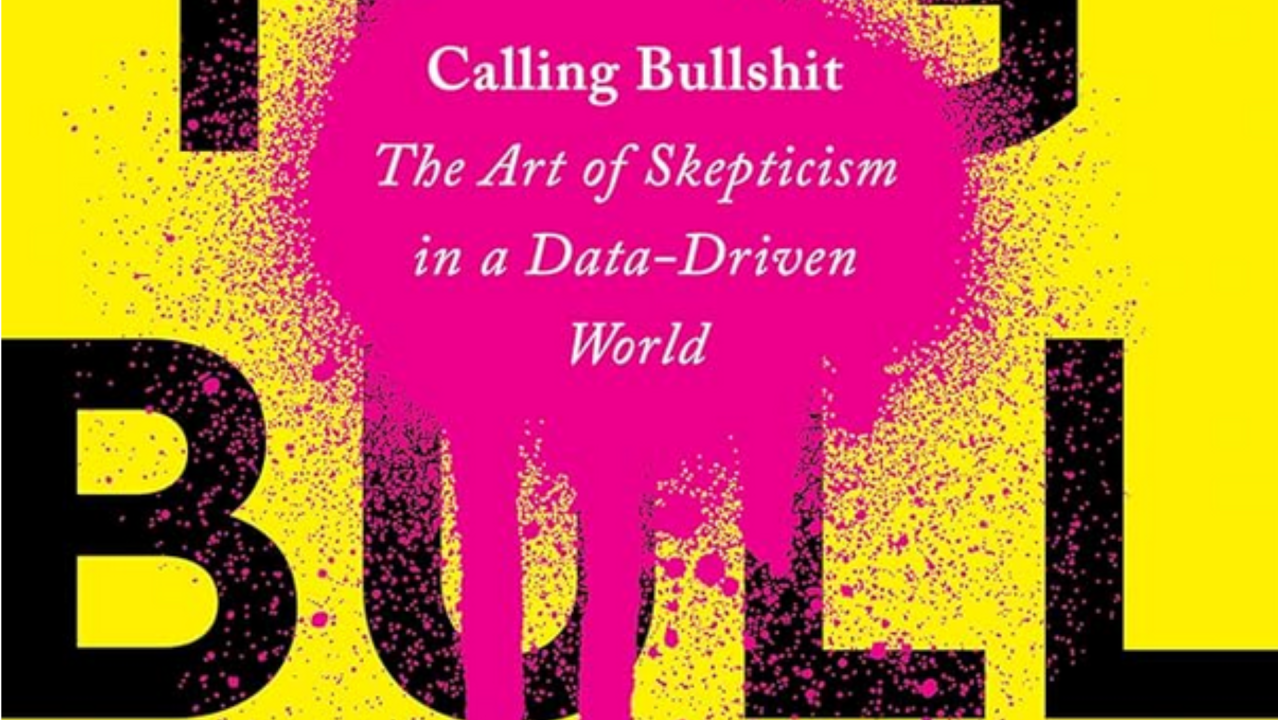This week’s Monday Book Club explores Calling Bullshit by Carl T. Bergstrom and Jevin D. West. In a world overwhelmed with data, numbers, and scientific jargon, this book offers a much-needed guide to spotting misinformation and understanding when we’re being misled—even by information that seems credible at first glance. Whether you’re a business leader or just a curious thinker, the lessons in this book can help you develop sharper critical thinking skills in today’s data-driven environment.
Key Concepts from Calling Bullshit
The book explores how data, algorithms, and scientific language can be manipulated to mislead, and how we can sharpen our skepticism to see through the clutter. The five key takeaways emphasize the importance of understanding when and how we are being deceived—whether intentionally or through subtle manipulation. From the rise of new-school misinformation to the role of algorithms, these lessons are essential for anyone looking to make informed decisions in both their professional and personal lives.

The Rise of New-School Bullshit
Bergstrom and West emphasize that the modern era has given rise to “new-school bullshit,” which often hides behind the veil of data, math, and scientific language. This type of misinformation creates the illusion of credibility, making it difficult to challenge. As a result, people are more easily manipulated: “New-school bullshit uses the language of math and science to create the impression of rigor and accuracy.”
Paltering: Misleading Without Lying
The concept of paltering, or misleading without telling outright lies, is explored as a subtle but powerful tool for misinformation. It gives people plausible deniability while still allowing them to deceive: “If I deliberately lead you to draw the wrong conclusions by saying things that are technically not untrue, I am paltering.”

The Energy Cost of Refuting Bullshit
One of the book’s central tenets is Brandolini’s Law, which states that it takes much more energy to refute misinformation than to create it. This is a key reason why false information, once spread, is so hard to correct: “The amount of energy needed to refute bullshit is an order of magnitude bigger than [that needed] to produce it.”
Algorithms and Social Media
The authors dive into how algorithms, especially on social media, contribute to the spread of misinformation by reinforcing our biases. These platforms are designed to keep our attention, not to present the truth: “Algorithms driving social media content don’t care about the messages they carry. They just want our attention and will tell us whatever works to capture it.”

The Power of Simplicity in Misinformation
Bergstrom and West point out that misinformation often spreads because it is simple and compelling, whereas the truth is usually more complicated and nuanced: “One advantage that falsehood has over truth is that the truth is often complicated, whereas falsehoods can be crafted to be simple.”
Applying These Concepts to Your Business
In a world filled with data and numbers, understanding how to call out misinformation is critical for business leaders. Whether you’re making data-driven decisions or evaluating metrics for your team, knowing when numbers are being misused or presented without context can save you from costly mistakes.
For founders and executives working on go-to-market (GTM) strategies, these lessons resonate deeply. Misleading data, misinterpreted correlations, and oversimplified metrics can easily derail a business. By applying skepticism and critical thinking, you can avoid falling into the traps of false data and faulty interpretations, ensuring that your GTM decisions are based on reliable, actionable insights.

My Rating: ⭐⭐⭐⭐⭐ (5/5)
Calling Bullshit is a crucial read for anyone living in today’s information-overloaded world. The book’s clear and engaging approach to teaching skepticism is invaluable. Whether you’re navigating business decisions or simply trying to make sense of the news, Bergstrom and West offer tools to cut through the noise and identify the truth.
How Does This Resonate with Your Experience?
Have you found yourself questioning the accuracy of data in your day-to-day decision-making? Let’s discuss how these principles apply to your business strategy and how skepticism can be a valuable tool for your company’s growth. Let us know in the comments!
